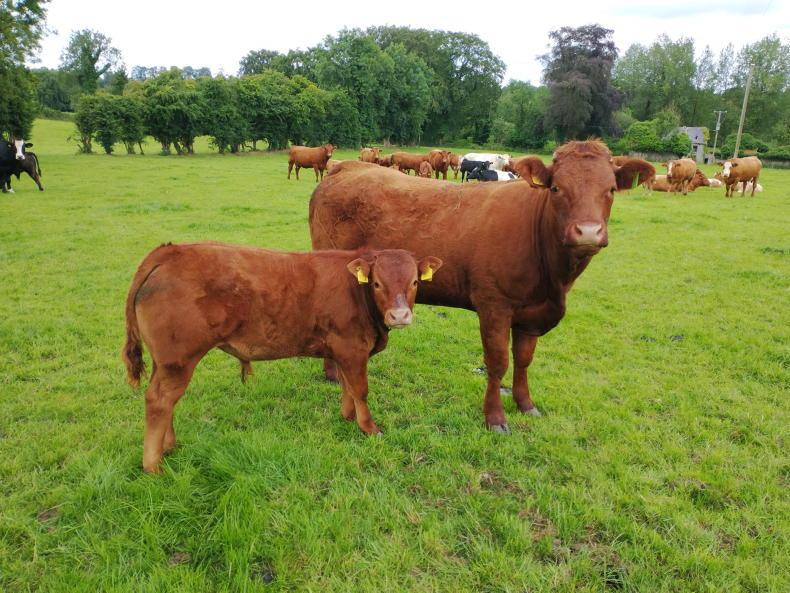As reported in last weeks’ edition (dated 26 November) ABP has offered 350 beef and sheep suppliers across the UK the opportunity to get a carbon audit done.
The initiative follows on from something similar announced by co-ops at the 2021 Winter Fair, with carbon audits offered to dairy farmers in CAFRE Business Development Groups in 2022.
But all this is somewhat of a prelude to the potential roll-out of additional questions related to carbon emissions in NI beef and lamb farm quality assurance inspections in 2023. Ultimately, once a new NI Sustainability body gets up and running (to coordinate our marketing activity), carbon benchmarking of all farms will be a key aim.
The big driver behind all this is the likes of the major UK retailers. The wider industry has to respond.
In the short term, it is not difficult to reduce emissions per kg of meat or per litre of milk. Lowering the age at first calving, slaughtering cattle at younger ages, or driving on yield per cow through efficient feeding systems, will all have a positive impact.
But at the same time, if you make farms more efficient, you create conditions that allow increased output, and with that will come higher overall emissions. GHG emissions per unit of output, and total emissions from agriculture both need to fall – we cannot concentrate on one, and ignore the other.
The ultimate aim for our industry has to be to farm efficiently, lowering emissions per unit of output, which then frees up land to grow feed or energy crops. A coordinated effort is required across all farming sectors.
Accounting systems
It is also fair to ask whether by getting involved in carbon audits we are actually creating a stick to beat us with down the line. In the current accounting systems, carbon emitted as methane by ruminants (part of a natural cycle) is treated the same as carbon released from burning fossil fuels. While that remains the case, the vast majority of livestock farmers cannot get to net zero emissions.
When retailers do eventually insist on emissions per kg or per litre on packs of food, we will not score well against plant-based alternatives, and ultimately consumers will be misled.
We must continue to argue that the system underpinning carbon audits is fundamentally flawed.
Read more
ABP UK launch £1.5m farm scheme
The professor explains: What’s the craic with Carbon?
As reported in last weeks’ edition (dated 26 November) ABP has offered 350 beef and sheep suppliers across the UK the opportunity to get a carbon audit done.
The initiative follows on from something similar announced by co-ops at the 2021 Winter Fair, with carbon audits offered to dairy farmers in CAFRE Business Development Groups in 2022.
But all this is somewhat of a prelude to the potential roll-out of additional questions related to carbon emissions in NI beef and lamb farm quality assurance inspections in 2023. Ultimately, once a new NI Sustainability body gets up and running (to coordinate our marketing activity), carbon benchmarking of all farms will be a key aim.
The big driver behind all this is the likes of the major UK retailers. The wider industry has to respond.
In the short term, it is not difficult to reduce emissions per kg of meat or per litre of milk. Lowering the age at first calving, slaughtering cattle at younger ages, or driving on yield per cow through efficient feeding systems, will all have a positive impact.
But at the same time, if you make farms more efficient, you create conditions that allow increased output, and with that will come higher overall emissions. GHG emissions per unit of output, and total emissions from agriculture both need to fall – we cannot concentrate on one, and ignore the other.
The ultimate aim for our industry has to be to farm efficiently, lowering emissions per unit of output, which then frees up land to grow feed or energy crops. A coordinated effort is required across all farming sectors.
Accounting systems
It is also fair to ask whether by getting involved in carbon audits we are actually creating a stick to beat us with down the line. In the current accounting systems, carbon emitted as methane by ruminants (part of a natural cycle) is treated the same as carbon released from burning fossil fuels. While that remains the case, the vast majority of livestock farmers cannot get to net zero emissions.
When retailers do eventually insist on emissions per kg or per litre on packs of food, we will not score well against plant-based alternatives, and ultimately consumers will be misled.
We must continue to argue that the system underpinning carbon audits is fundamentally flawed.
Read more
ABP UK launch £1.5m farm scheme
The professor explains: What’s the craic with Carbon?






 This is a subscriber-only article
This is a subscriber-only article










SHARING OPTIONS: